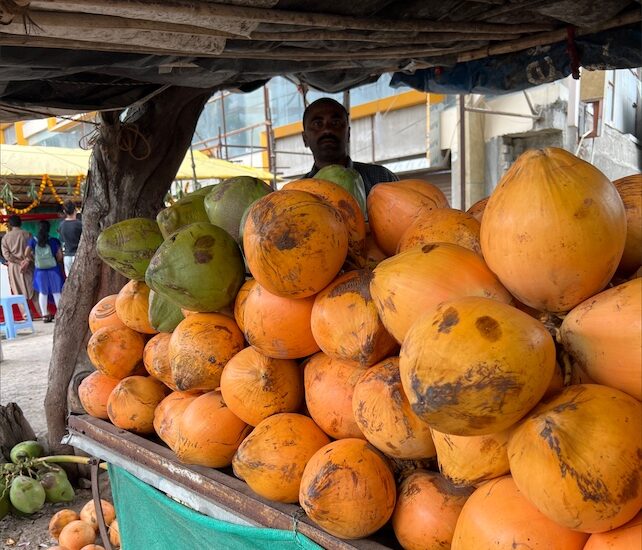- August 29, 2023
- Posted by: Web Admin
- Category: Product Knowledge

The attraction of king coconuts goes beyond their delectable taste; their adaptability has made them a staple in a variety of businesses, including food, beverages, cosmetics, and traditional medical treatments. However, increased demand for king coconuts caused worries about overexploitation and its impact on the environment as well as local populations’ livelihoods.
Conservation Challenges
1. Habitat Loss: Urbanization, agricultural expansion, and tourism development can eliminate natural areas where King Coconut palms grow. As a result, biodiversity and environmental services are lost.
2. Genetic Diversity: Relying too heavily on one species of King Coconut for commercial purposes might limit its genetic diversity, making it more vulnerable to illnesses and changing environmental circumstances.
3. Impact on Local Communities: Unsustainable methods of harvesting can harm local populations that rely on King Coconuts for a living while also disrupting traditional norms and cultural heritage.
Industry Constraints
1. Demand for Products: Due to its claimed health benefits, King Coconut products such as water, oil, and cosmetics have increased in popularity. This leads to greater harvesting in order to meet the demands of the market.
2. Economic Importance: The coconut industry makes an important contribution to the economies of many tropical countries. Farmers, processors, and distributors rely on King Coconut goods as their livelihoods.
3. Export Opportunities: Exporting King coconut-based goods has the potential to increase foreign exchange profits. However, if not regulated, this can intensify harvesting methods.
Balancing Conservation and Industry
1. Regulation and Monitoring: Governments and regulatory agencies should develop and implement sustainable harvesting criteria. Quotas, age limitations, and periodic harvesting can help prevent excessive extraction.
2. Varietal Diversification: Promoting the growth of multiple King Coconut kinds can increase genetic variety, making the species more adaptable to illnesses and changing environmental conditions.
3. Education and Awareness: Raising consumer awareness about the benefits of sustainable sourcing can help to develop market demand for ethically harvested King Coconut products.
4. Community Involvement: Including the local population in decision-making processes and guaranteeing equitable benefit sharing can develop a sense of ownership and encourage sustainable practices.
5. Value Addition and Processing: Investments in value-added processing of King coconut-based goods can help alleviate the demand for fresh fruit harvesting. This may result in the development of a broader range of products, resulting in less waste and greater financial benefits.

